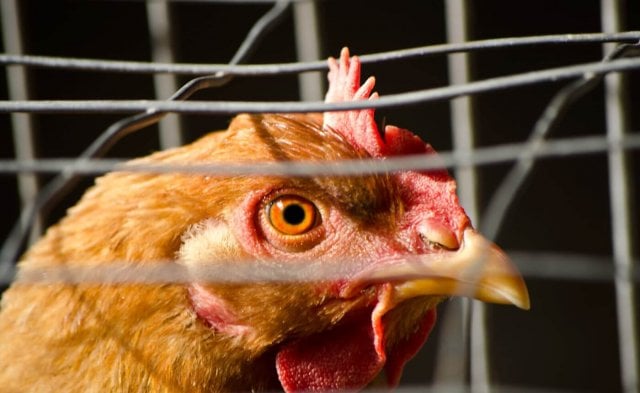PETA’s A-Team (short for “Action Team,” of course) has taken a page from two of the most popular books that nearly every successful businessperson has read—The 7 Habits of Highly Effective People by Stephen R. Covey and How To Win Friends and Influence People
by Dale Carnegie—and written our own influential new advocacy guide, “Effective Advocacy: Planning for Success.”
The guide, lists PETA’s top seven strategies for effective advocacy and will help you work smarter—but not necessarily harder—to help animals. It includes information on “personal purity vs. effective advocacy,” answers to tough questions, tips on learning from mistakes, and much more. There is something in it for everyone, regardless of age or activity level.
One of the simplest and most important reminders in the guide is about how even the smallest of actions—such as wearing buttons and T-shirts with animal-friendly messages—can have a big impact for animals. Here’s an excerpt from that section:
You can also spread the word in other nearly effortless ways. If you’re in a health-food store or a sympathetic bookstore, you can talk to the management about distributing some vegetarian/vegan starter kits, which are filled with health tips, recipes, and information on animal rights. A lot of diners, stores, and organizations also have bulletin boards on which you can tack up a few fliers. These are just a few effective but simple things that you can do to make a major difference for animals—if you convince one person to go vegan, you will save thousands of animals. People who see your bumper sticker or your cool T-shirt might start thinking about animal rights, and if they approach you, you will have the information that you need to talk to them about these issues. Every time that a new person thinks about animal rights or thinks, “Hey, they look pretty normal, and they advocate animal rights,” it’s a victory for animals.
The guide also includes tips on interacting with others, answers to frequently asked questions, and much more. But read it for yourself and find out!
Oh, and pay close attention to the part where it says: “If you have anything that you want to talk to PETA about or anything that you want to brainstorm with us about—e.g., if you want to teach a cooking class and need guidance; want help with getting a video onto cable-access TV; want free leaflets, stickers, or signs (whether you need one copy or 1,000); want to organize a table for a local festival; or anything else—we are here to help. We are absolutely at the disposal of activists across the country.”
You can also join PETA’s Action Team to get updates on breaking news, urgent alerts, and information on events in your area.
Go A-Team!





